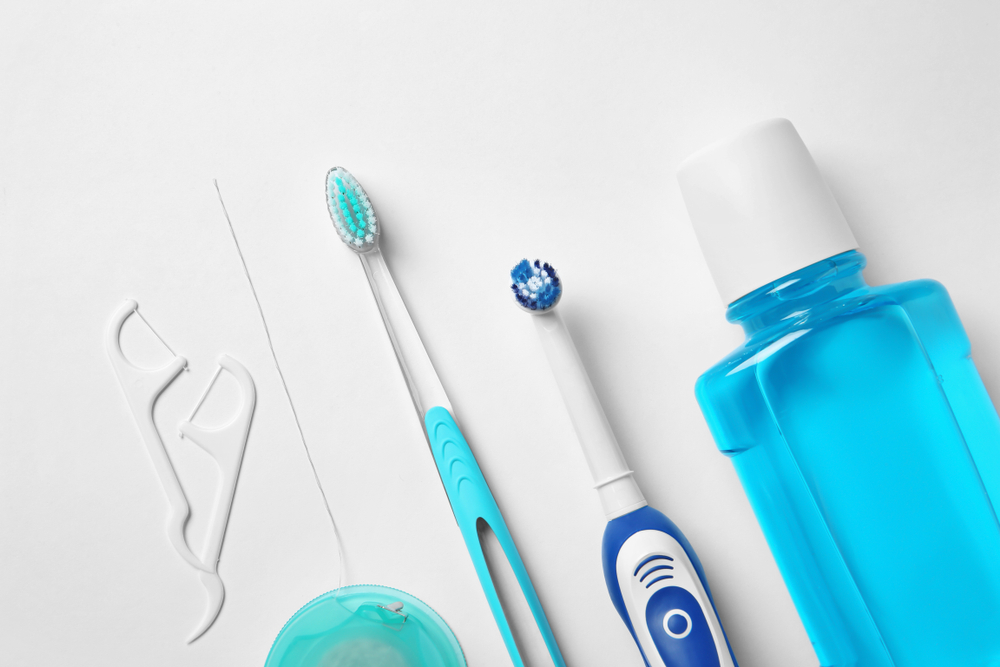

Effective Remedies for Freshening Your Breath
Nothing puts a damper on socializing like the fear of bad breath. Imagine meeting someone for the first time and all they will remember is the unpleasant odor from your mouth. It’s time to banish those fears and say goodbye to bad breath once and for all.
In this blog post, our Staten Island dentists explore simple, effective remedies that keep your breath fresh and your confidence soaring.
Understanding Bad Breath
Bad breath, also known as halitosis, can be an embarrassing and persistent issue that affects many individuals. It’s characterized by an unpleasant odor emanating from the mouth, which can cause self-consciousness and impact personal relationships. To effectively address bad breath, it’s crucial to understand its underlying causes and triggers.
Bad breath doesn’t solely originate from inadequate oral hygiene. Other factors such as dry mouth, certain foods and beverages, smoking, underlying medical conditions, and even medications can contribute to halitosis. Understanding the various factors contributing to bad breath sets the foundation for finding effective remedies tailored to individual needs.
Root Causes of Halitosis
Halitosis can stem from several underlying causes beyond poor dental hygiene alone. These include:
- Food choices: Eating certain foods like onions, garlic, and spices can lead to temporary bad breath. These odors typically dissipate once the foods are digested and eliminated from the body.
- Dry mouth: Inadequate saliva production can contribute to bad breath. This can be caused by factors such as medications, breathing through the mouth, dehydration, or certain medical conditions.
- Smoking and tobacco products: Smoking not only leaves a distinctive odor but also dries out the mouth and increases the risk of gum disease, further exacerbating bad breath.
- Medical conditions: Certain medical conditions like sinus infections, respiratory tract infections, gastrointestinal issues, liver or kidney problems, and diabetes can contribute to chronic bad breath.
- Poor oral health: Neglecting regular dental check-ups and cleanings allows bacteria to thrive in the mouth, leading to plaque buildup, gum disease, tooth decay, and persistent bad breath.
By addressing these underlying factors through proper oral hygiene practices, lifestyle changes, and seeking medical intervention when necessary, individuals can combat bad breath and regain their confidence.
 Dietary Impact on Breath
Dietary Impact on Breath
Have you ever found yourself in an embarrassing situation, realizing that your breath isn’t as fresh as it should be? The truth is — bad breath can have a significant impact on our confidence and social interactions. While there are numerous causes of bad breath, one often overlooked factor is our diet.
The foods we consume can directly affect the odor of our breath. For instance, consuming foods with strong odors like garlic and onions can lead to persistent bad breath, even hours after consumption. That’s because when these pungent compounds are digested, they enter the bloodstream and get carried to the lungs, affecting the air we exhale. Additionally, certain spicy foods can also contribute to bad breath by causing acid reflux or stimulating excessive saliva production.
It’s important to note that not all foods have negative effects on the breath. Some can help freshen it up! Incorporating certain foods into your diet can promote oral hygiene and reduce the occurrence of bad breath.
For example:
- Parsley: Chewing on parsley leaves after a meal has been long regarded as an effective remedy for combating foul-smelling sulfur compounds in the breath.
- Pineapple juice: Organic pineapple juice contains bromelain, an enzyme that helps break down proteins responsible for bad breath.
- Yogurt: Yogurt containing lactobacillus bacteria can reduce harmful bacteria in the mouth and improve bad breath.
- Oranges: Rich in vitamin C, oranges stimulate saliva production, helping wash away bacteria and eliminate bad breath.
- Green tea: This refreshing beverage contains disinfectant properties that temporarily freshen the breath.
By incorporating these foods into your daily diet, you can improve oral hygiene and combat bad breath caused by dietary factors. However, these remedies aren’t a substitute for proper oral hygiene practices.
Natural Ways to Freshen Your Breath
When it comes to refreshing your breath naturally, many remedies and treatments exist. These options offer a holistic approach to combating bad breath and can be easily incorporated into your daily routine.
Imagine waking up after a night of deep sleep only to realize that your morning breath could send people running in the opposite direction. Instead of reaching for conventional solutions like mouthwash, there are several effective natural alternatives worth exploring.
- Tongue scraping: Bacteria accumulate on the tongue’s surface, contributing to bad breath. Using a tongue scraper or brushing your tongue with your toothbrush can help remove this buildup and freshen your breath.
- Water: Drinking water throughout the day helps prevent dry mouth and encourages saliva production, which naturally cleanses the mouth.
- Fennel or anise seeds: Chewing on fennel or anise seeds after meals can act as a natural mouth freshener and neutralize odors.
- Apples: Raw apples can neutralize foul-smelling compounds in garlic and freshen your breath.
- Homemade mouthwashes: Baking soda or vinegar-based homemade mouthwashes can kill bacteria in the mouth, reducing unpleasant odors.
While these natural remedies can provide temporary relief from bad breath, they should be integrated into an oral hygiene routine. Regular brushing, flossing, and professional dental cleanings are still essential for maintaining optimal oral health.
Lifestyle Adjustments
Addressing the root causes of bad breath requires making certain lifestyle adjustments that promote optimal oral hygiene and overall health. By incorporating these changes into your daily routine, you can enhance your breath freshness and maintain it in the long run.
- Maintain Good Dental Hygiene
- Stay Hydrated
- Watch Your Diet
- Quit Smoking
- Manage Stress
By implementing these lifestyle adjustments and following good oral hygiene practices consistently, you can enjoy long-lasting freshness and bid farewell to bad breath.
Advanced Dental Interventions for Bad Breath
When persistent bad breath lingers despite regular oral hygiene practices and the use of commercial breath fresheners, seeking professional dental interventions becomes paramount. Dentists play a crucial role in diagnosing and treating the underlying causes of chronic halitosis.
Below are some dental interventions that can help address persistent bad breath effectively:
- Professional Teeth Cleaning and Scaling: Dentists are trained to perform thorough teeth cleanings that remove plaque, tartar buildup, and bacteria from hard-to-reach areas where brushing and flossing may not be sufficient. This deep clean minimizes the presence of harmful bacteria in the mouth, reducing the chances of bad breath.
- Treatment of Gum Disease: Gum disease, such as periodontitis or gingivitis, can contribute significantly to bad breath. Dentists can evaluate the gums and provide appropriate treatments like deep cleaning, medications, or even referral to a periodontist for more advanced cases. By addressing gum disease, the underlying cause of halitosis is tackled effectively.
Seeking professional dental interventions for bad breath can sometimes feel overwhelming or nerve-wracking. However, it’s essential to understand that dentists are highly trained healthcare professionals who genuinely want to help improve your oral health and overall well-being. They’re there to guide you through the process and provide personalized treatments that address your specific concerns.
Laugh and Speak Freely Knowing Your Breath Is Fresh
If you’re suffering from chronic bad breath, contact our Staten Island dentists. We’ll schedule you for a dental cleaning and discuss some home remedies or possible treatment options to help cure your bad breath.


 Dietary Impact on Breath
Dietary Impact on Breath